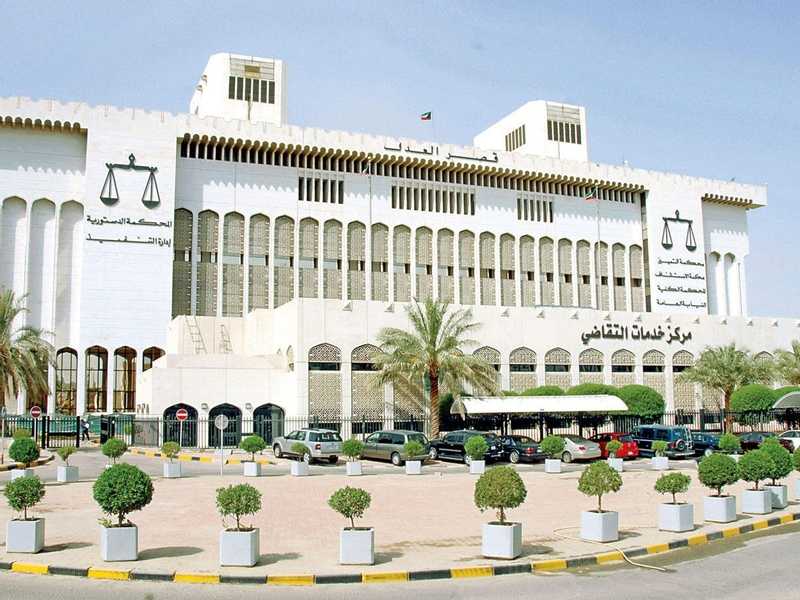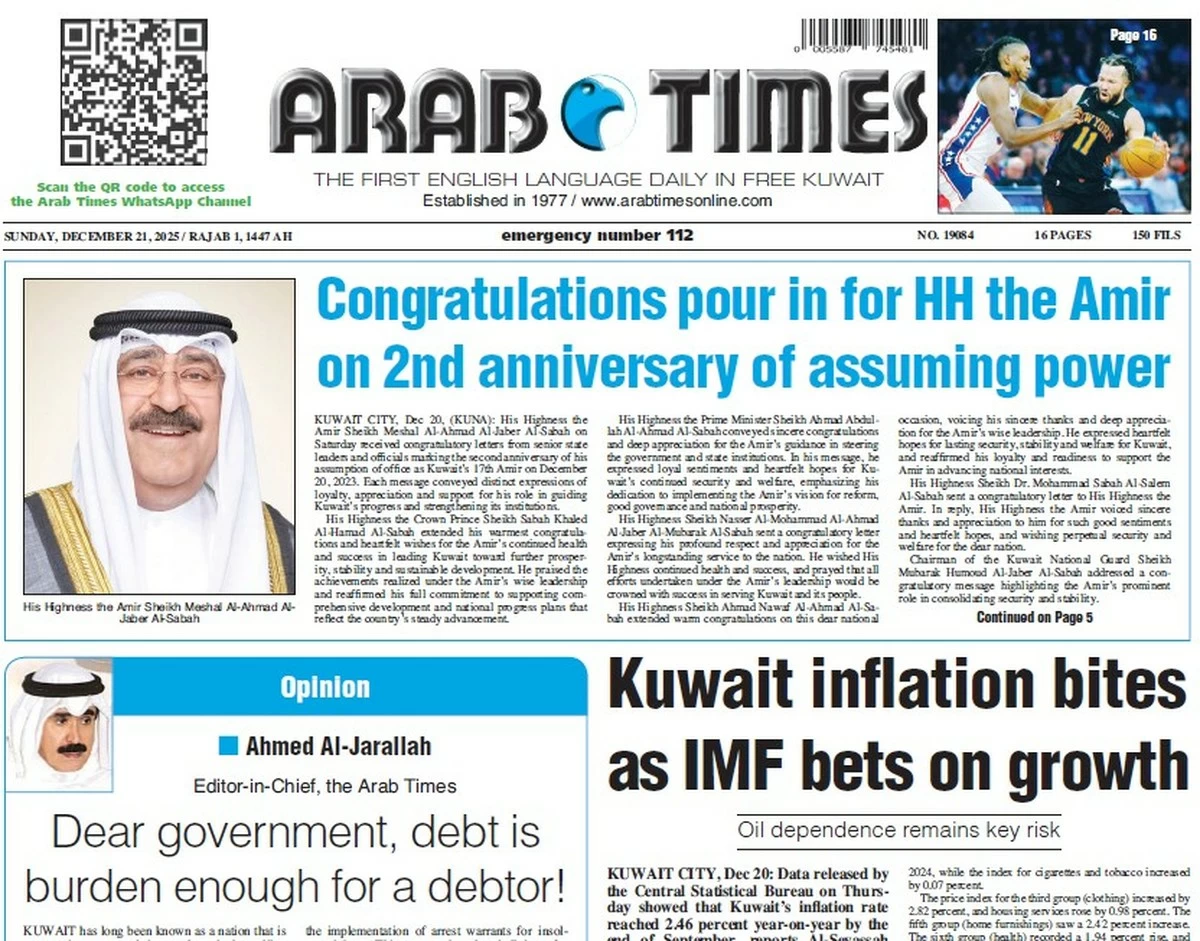27/06/2024
27/06/2024

KUWAIT CITY, June 27: The Court of Cassation -- headed by Judge Saleh Al-Muraishid -- sentenced a sheikh, his partner and two expatriates to 10 years in prison; and a lawyer to seven years in prison, in the largest money laundering case known as ‘Malaysian Fund’. The court also obliged them to return a billion dollars, and fined them jointly a total of KD145 million (the equivalent of half a billion dollars), The Public Prosecution reopened the Malaysian Fund case after a two-year hiatus due to the failure to receive information from international bodies, without filing the case. It had earlier charged the defendants with money laundering, as well as forgery of customary and official documents and criminal agreements, but they denied the charges. Then, through its representative in court -- Chief Prosecutor Hammoud Al-Shami –the prosecution demanded that the maximum penalties be imposed on the accused. The prosecution confirmed in its case that the defendants committed money laundering and forgery crimes across countries, and that the action they committed is considered a form of money laundering crime punishable by law. It is worth mentioning that the convicted defendants are currently serving time in the Central Prison, except the Syrian and Chinese defendants who are outside the country and international arrest warrants have been issued against them.
Merits
The court said, in the merits of its ruling, that all the elements of the crime of money laundering and participation in it as described by the prosecution were present, which stated all these happened in the midst of development projects being implemented in Malaysia, including the construction of an oil and gas pipeline, and a high-speed railway system in cooperation with the People’s Republic of China, and in conjunction with the issues of purchasing the debt of the Malaysian sovereign fund (1MDB) and its subsidiary (SRC).
This resulted in one of the defendants using his influence to appoint his partners as secretaries of the highly influential Malaysian-Chinese Strategic Economic Committee, to ensure the signing of agreements for the two railway construction projects and the construction of an oil pipeline between the governments of Malaysia and China. It added that this was done “by urging the awarding of the electric railway project to China Communications Co., Ltd. (CCCC), and the oil and gas pipeline project to the China Bureau of Pipelines Co., Ltd. (CPP). The Malaysian Prime Minister issued instructions to the Malaysian Public Land Transport Authority to submit the proposal to the Economic Council for an agreement with the company (CCCC) to implement the electric railway project at a cost ranging from 45 to 55 billion Malaysian ringgit. However, the Malaysian Public Land Transport Authority objected to the conditions, because the projects did not go through a public tender to add transparency to the award process. The Malaysian Ministry of Finance then established the Malaysia Rail Link Company (MRLSB) for the purpose of managing and implementing the electric railway project. CCCC was appointed as the contractor to implement the project.
The Malaysian Prime Minister submitted a memorandum to the Malaysian Council of Ministers regarding the agreement that the implementation of the electric railway train project and the oil pipeline project will be carried out by MRLSB at a cost of 55 billion Malaysian ringgit and CCCC is the contractor. It stated these projects are financed by the Chinese (EXIM) Bank, according to an agreement signed by the Malaysian Prime Minister during an official visit to China. The Economic Planning Unit in the latter’s administration sent a letter presenting the electric railway project, according to which the Ministry of Finance agreed to allocate budgets in stages through a government grant to purchase pieces of land for the project, and the agreement for the project was signed.
MRLSB also concluded an agreement with the Chinese EXIM Bank under which the loan was provided at a rate of up to 85 percent of the cost of implementing the project, while the government of Malaysia approved 15 percent of the amount through Islamic sukuks and bonds. The Malaysian Ministry of Finance established the Syria Strategic Energy Resources (SSER) -- a company related to energy resources, natural resources and minerals, their transportation and distribution, and the development of related infrastructure operations. The contractor that was appointed to implement the project was the Chinese Pipeline Office Company Limited (CPP), and SSER Company applied for a loan from the Chinese EXIM Bank for each of the two projects -- equivalent to 85 percent of the total cost, and the agreement was signed.
By Jaber Al-Hamoud
Al-Seyassah/Arab Times Staff


